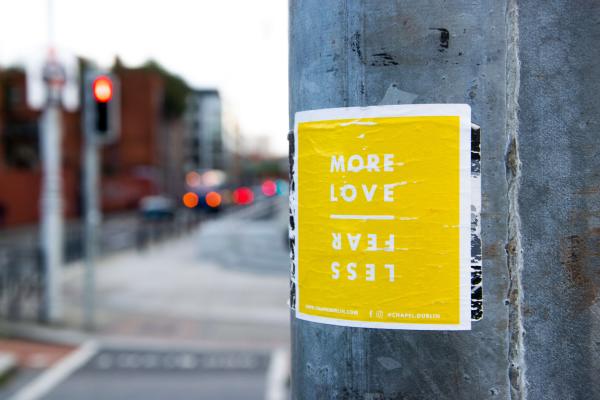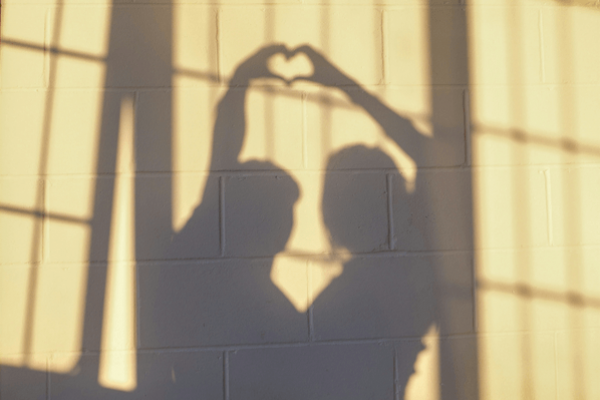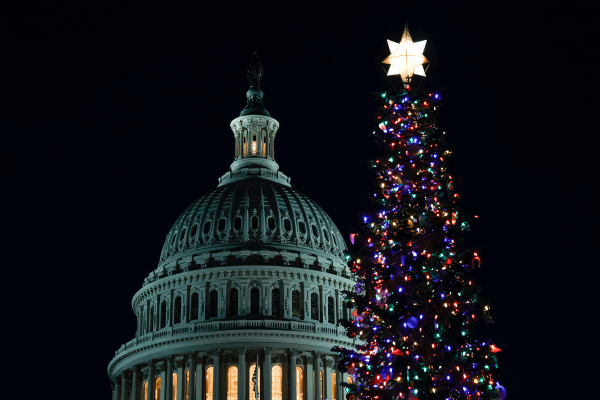Editors note: This is part five of an eight-part series exploring the eight Jesus questions all of us must face, highlighted in Jim Wallis's new book Christ in Crisis: Why We Need to Reclaim Jesus (HarperOne), available now. These next eight weeks will help us go deeper than the headlines, to find our way back to Jesus in the midst of this intensive and exhausting news cycle.
Want to hear this in an audio format instead? We just launched an eight-episode podcast series called Reclaiming Jesus Now that features Allison Trowbridge and William Matthews speaking with Jim Wallis about these questions and their relevance today.
It’s hard to deny that we’re living through a fearful time in the United States and around the world. Political leaders are weaponizing fear to maintain power, turn people against each other, inspire discrimination, and even incite violence. Parents of children of color are afraid every time their children leave the house. I’ll be in Los Angeles this week as I continue my book tour for Christ in Crisis: Why We Need to Reclaim Jesus, and a large number of people in the Latinx community there know and love someone who is undocumented. They live in fear each day that ICE will tear their families apart. Climate change poses an existential threat to civilization, and we see more and more signs of that by the day. One of our events in northern California this week had to be cancelled because of the unprecedented power outages put in place to try and prevent wildfires, which continue to increase in number and severity in recent years. What does it take to confront and overcome such omnipresent and often justifiable fears?
I love what Jesus says over and over again, “Be not afraid,” eight times in the New Testament. When I was a little boy, we were told the story of the disciples in the boat. They’re on the boat and the waves are rocking and rolling, and they’re scared. But then they see Jesus coming, walking on the water, and he says to them, “It is I. Be not afraid.” In other words, “It’s me. I know you're scared. It’s ok. I’m here with you.” So, our Sunday School class was told: “When you’re scared, when you don't know what's going on, let Jesus into your boat and everything will calm down.” In 2nd Timothy, Paul makes a related point: “For God has not given us the spirit of fear; but of power, and of love, and of a sound mind” (1:7).
These texts raise some key questions. What is fear? Isn’t fear sometimes useful and even necessary? We are wired as human beings to be afraid of things that will do us harm. We’re wired that way for survival. So when is that useful and when is that harmful and destructive? When we don’t just experience and deal with fear but live in the spirit of fear, that can dehumanize us, make it easier for us to dehumanize others, and lead to hate and violence. And that’s what’s happening now in the United States and many places around the world. We’re being inundated with the spirit of fear, as a political strategy to make us afraid, and then make us hate. And hate, as we’ve seen over and over, all too often leads to violence. Our response to feeling fear is either healthy or not healthy, and it can dehumanize us if we don’t respond by trusting and turning to God. My sister put it really well in a sermon she gave a few months ago on fear in her church. She said fear can create a spiritual amnesia where we forget God, forget who God is and forget God’s promise to always be with us.
In the United States, fear being fanned as a political strategy. It is perhaps most vividly seen in President Trump’s central campaign promise to build a wall on the U.S.-Mexico border. We need to call this so far mostly imaginary wall what it is — a wall of fear. Everything the wall is supposed to protect us from is based on lies. Drugs are coming in through established checkpoints at legal border crossings. They’re not being carried across unguarded borders. Similarly, terrorists are not entering the U.S. by walking across the southern border. As for crime related to undocumented immigrants, the data shows that immigrants commit less crimes than American citizens. The wall — or the idea of the wall — is really a monument to fear. And the fear is of people of color coming into our country.
In the lead up to last year’s midterm elections, Trump argued that the wall would protect us from another thing he tried to make us fear: the so-called caravan of Central American migrants traveling towards the southern border in search of safety and a better life. He and his allies painted it as a caravan of leprosy, smallpox, drugs, and gangs. We haven’t seen leprosy in the United States for a long time, but his allies knew invoking it would likely strike a chord with Christians because scripture is the context in which we usually hear about it. This is what the spirit of fear looks and sounds like. These aren’t reasonable things to be careful about. This is taking the spirit of fear, aiming at “others,” people not like “us.” He’s continuously made this argument that black and brown immigrants are people “we” should be afraid of coming to America. This is not “make America great again,” but “make America white again.”
How are we, as followers of Jesus, to respond when there’s a global political strategy to make people afraid of those who are different than them? This is a spiritual battle. This is more than just choosing your politics and whose policies you like better. This is a matter of what's happening to us as human beings. It’s about what happened at Mother Emanuel A.M.E in June 2015. It’s about what happened at the Tree of Life Synagogue in Pittsburgh in October 2018. It’s about what happened at a mosque in Christchurch New Zealand, in March 2019. The spirit of fear is being used politically, with little or no regard to the way in which fanning hate paves the way for violence — or, at worst, understanding that connection and inciting fear either in spite of that or for that very purpose.
It’s also the case that America’s historical and current white supremacy also predisposes white Americans to a spirit of fear, especially in how they see people of color. And yet, the data shows that white supremacist terror is actually the form of terror that Americans should most fear, as it claims significantly more lives in the United States than groups like ISIS or people inspired by them. As William Matthews explained in this week’s episode of the Reclaiming Jesus Now podcast on the “Fear Question”:
“We have so projected our fear externally that we have not been willing and able to look at what is going on internally in this country — that the greatest threat to America currently is white nationalism, not ISIS. And somehow the messaging has forced us to call out the speck over there and miss the beam in our own eye … the truth is, we don’t want to own our complicity in violence inside of our own borders as well as violence through militarism, outside of our own borders. And I think that puts us in such a dangerous place, because we’re so willing to root out the speck somewhere else and totally unwilling to see the big plank of white supremacy in our own midst.”
Another issue is the way our media consumption has primed us to live in the spirit of fear and, in some ways, almost seek it out. As Allison Trowbridge described in this week’s podcast conversation:
“I’ve seen an ever increasing shift of media outlets in propagating fear and being driven by both clickbait and things that can lock people into watching for longer periods of time. And fear always captivates the human attention and imagination. And so I think we are complicit in creating an appetite for news that fans and spreads these fears.”
In other words, we all have a lot of work to do to take the beams from our own eyes and make sure that we aren’t operating in the spirit of fear, or behaving in ways that make us more susceptible to it.
In this fearful time we need a sound mind, and for followers of Jesus, that means turning to Jesus, asking for his help, and trusting God and trusting and loving our neighbors. Psalm 23, which I have used time and time again, at people’s bedsides as they are dying, or in situations of violence, says, “yea though I walk through the valley of the shadow of death, I will fear no evil: for you are with me ...” God never commands us to be fearless. We need to understand that there may be things to be concerned about, even fearful about, but fear doesn’t separate us from God. It’s allowing that fear to give us spiritual amnesia, and allowing ourselves to forget that God is always here for us, that does that. When we’re afraid, let’s remember to turn to Jesus, to let him into our boats, and he’ll calm the waters.
Got something to say about what you're reading? We value your feedback!







